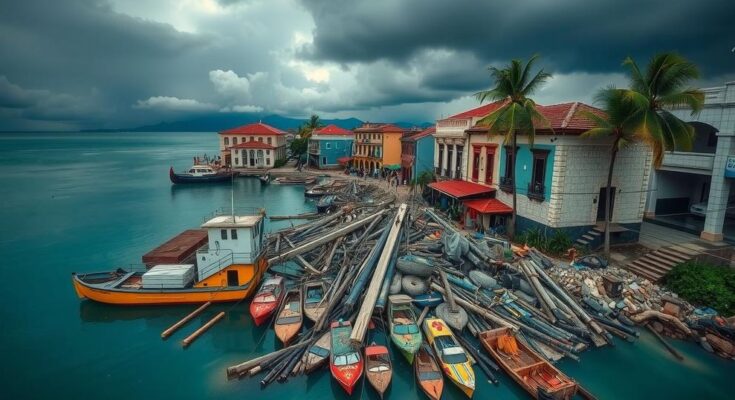A powerful 6.8-magnitude earthquake struck eastern Cuba, compounding the struggles of a nation still recovering from recent storms. Although no casualties were reported, significant damage occurred, particularly in Santiago de Cuba and Granma. The earthquake was particularly felt given its strength and history of seismic activity in the region.
An earthquake measuring 6.8 on the Richter scale struck eastern Cuba, exacerbating the struggles of a nation already dealing with the impacts of recent storms and power outages. The tremor, centered approximately 40 kilometers south of Bartolome Maso, has reportedly prompted landslides and damage to homes and power lines. Notably, no fatalities or serious injuries had been reported at the time of the event, but efforts are underway to assess the damage and initiate recovery operations. Cuban President Miguel Diaz-Canel acknowledged the significant impact of the earthquake, particularly in the provinces of Santiago de Cuba and Granma. He emphasized the necessity of evaluating the damage to prioritize saving lives. Many residents, including Santiago local Griselda Fernandez, remarked that this earthquake was an unprecedented experience for them, with others describing buildings shaking violently during the event. Images released by state-run media depicted significant structural damage throughout the impacted regions, including collapsed roofs and compromised walls. The earthquake represents the latest challenge for Cuba, a country already facing a historical pattern of natural disasters. In October, Hurricane Oscar caused fatal outcomes and infrastructure difficulties, while Hurricane Rafael recently disrupted power for millions, highlighting the compounding crisis of natural disasters and economic instability. The US Geological Survey noted that surrounding areas, including Jamaica, experienced aftershocks from the earthquake, indicating a broader geographic impact. This series of calamities has intensified the urgency for recovery and rebuilding efforts in Cuba, where many residents are already confronting substantial challenges to their livelihoods.
Cuba has faced a series of natural disasters in recent months, significantly impacting its infrastructure and economy. The combination of hurricanes and the recent earthquake has resulted in widespread suffering and disruption. The country is currently grappling with recovery efforts to restore power, address damaged infrastructure, and assist displaced residents, all while trying to stabilize economic conditions that were already precarious due to previous storms.
The earthquake in eastern Cuba poses yet another significant challenge for a nation already under strain from recent natural disasters. With the government prioritizing recovery efforts, the situation underscores the vulnerability of older structures in the region. The incident highlights the urgent need for improved disaster preparedness and infrastructure resilience in the face of escalating natural threats, as the country continues to grapple with economic adversity and recovery post-storms.
Original Source: www.aljazeera.com




